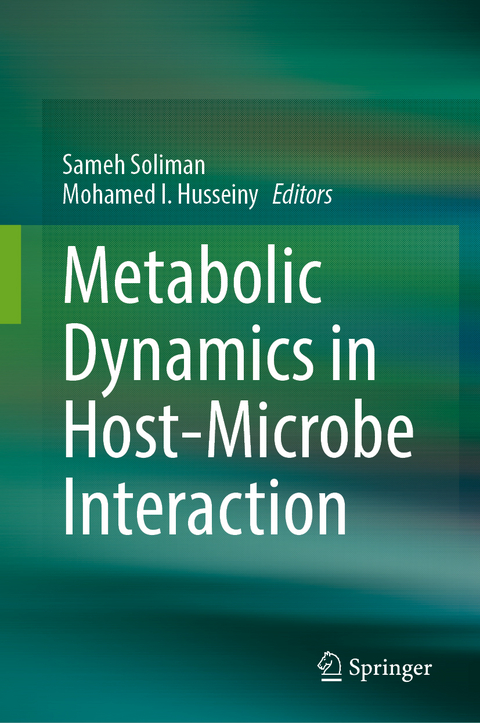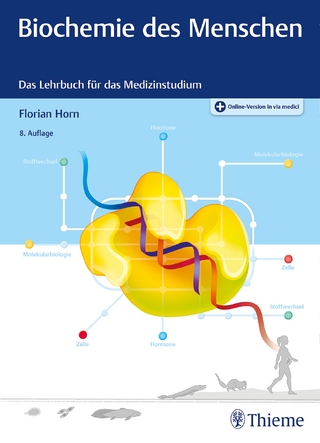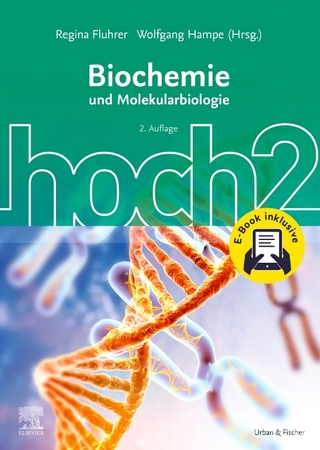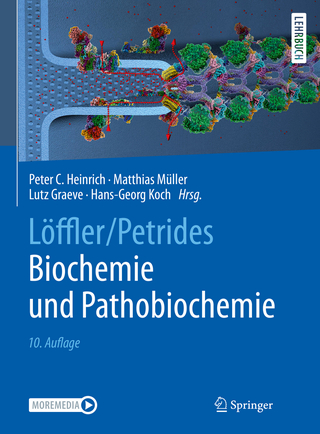
Metabolic Dynamics in Host-Microbe Interaction
Springer Nature Switzerland AG (Verlag)
978-981-96-1304-5 (ISBN)
- Titel nicht im Sortiment
- Artikel merken
Dr. Sameh S.M. Soliman is currently working as a faculty member at the University of Sharjah, his focus includes teaching and research of natural products and the metabolism of different organisms and their ecological roles in nature. Besides, he extensively studies the metabolism of living organisms and their roles in disease development and management. He received his bachelor’s and master’s degrees in pharmaceutical sciences. He received his PhD from University of Guelph, Canada with a focus on chemical ecology of natural products and its role in host-microbe interactions. Then he did a postdoctoral fellowship in mycotoxin manipulation and detoxification at Canadian Federal labs followed by another postdoctoral fellow at the University of California, Los Angeles (UCLA) in chemical and biomolecular engineering of natural products. At UCLA Medical School, he received extensive training in infectious diseases, pathogenesis mechanisms and possible ways of diagnosis and treatment. His research interests include Natural Products as potential medicines and Microbial Products either as toxins or medicines. He developed a strategy to combat fungal infection by developing selective anti-pathogenic drugs via a deep understanding of the evolved behaviour of fungal pathogens. This is by developing neutralizing agents against specific pathogenic threats that are used by the pathogens and do not exist in our microbial flora, thus it weakens the pathogens while enhancing the human defense system against these pathogens. Dr. Mohamed I. Husseiny is currently working as an associate research professor, with over 24years of experience in vaccination strategy. Throughout his career, his goal remains to employ vaccine strategies to ameliorate and prevent infectious and non-infectious diseases including cancer and autoimmune diseases. He received his bachelor’s and master’s degrees in pharmaceutical sciences and medical microbiology. This gave him training in drug development, microbiology, and immunology. Continuing to enlarge his expertise in this area, he completed his Ph.D. at the Institute for Clinical Microbiology, Immunology and Hygiene, Friedrich-Alexander University, Erlangen-Nürnberg, Germany. During his Ph.D., he established a novel system for gene therapy. Furthermore, he has extensively trained in murine immunizations and infection. Based on this, he developed an oral vaccine against Listeriosis using genetically engineered Salmonella. He employed the genetically engineered Salmonella system to develop a vaccine for cancer during his postdoctoral fellowship in the Children’s Hospital of Los Angeles. Then, he moved as a postdoctoral fellow into City of Hope, Division of Translational Vaccine Research, Beckman Research Institute. He used a novel strategy to generate a panel of recombinant BK virus (rBKV) expressing various fragments of the HIV-1 gag polypeptide and green fluorescent protein (GFP) under control of the BKV late promoter. He joined Arthur Riggs Diabetes & Metabolism Research Institute, Beckman Research Institute, City of Hope as postdoctoral fellow in December 20110 then moved to staff scientist in 2012 then promoted to assistant research professor in October 2014.
1. Metabolism: Fine and Coarse Controls.- 2. Bioinformatics and Artificial Intelligence Approaches in Metabolic Pathways.- 3. Methods of Extraction, Detection, and Identification of Different Metabolites – A Metabolomics Approach.- 4. Bacterial Metabolites in Attack.- 5. Bacterial Metabolites in Defense: A Crucial Aspect of Microbial Interaction and Host Protection.- 6. Fungal Metabolites in Attack.- 7. Fungal Metabolites in Defense.- 8. Role of Metabolism in Supporting Immune Responses.- 9. Metabolic Imbalance in Immune Cells in Relation to Metabolic disorders, Cancer, and infections.- 10. Metabolism of Cellular Immunity and Its Role in Supporting Responses to Microbial Infection.- 11. The Fight for Iron: A Central Theme in Host-Pathogen Interactions.- 12. The Mechanisms and Therapeutic Implications of Metabolic Communication in the Tumor-Immune Microenvironment.- 13. The Role of Microbiome in Metabolic Pattern Changes.- 14. Metabolic Pattern of Microbiome in Healthy versus Patient Individuals.- 15. Role of Microbiome in Defense.- 16. Human Microbiota and Metabolic Alteration in Cancer Progression and Treatment.- 17. The Microbial and Metabolic Link between Gut and Brain.- 18. Machine Learning Approaches in Metabolic Pathway Predictions and Drug-Target Interactions: Advancing Drug Discovery.
| Erscheint lt. Verlag | 28.2.2025 |
|---|---|
| Zusatzinfo | 74 Illustrations, color; 2 Illustrations, black and white; Approx. 400 p. 10 illus. |
| Verlagsort | Cham |
| Sprache | englisch |
| Maße | 155 x 235 mm |
| Themenwelt | Studium ► 1. Studienabschnitt (Vorklinik) ► Biochemie / Molekularbiologie |
| Naturwissenschaften ► Biologie ► Biochemie | |
| Schlagworte | Artificial Intelligence in Metabolite Prediction • Defensive Metabolites • Environmental adaptation • Metabolic Pathways • Viruses and Metabolism |
| ISBN-10 | 981-96-1304-3 / 9819613043 |
| ISBN-13 | 978-981-96-1304-5 / 9789819613045 |
| Zustand | Neuware |
| Haben Sie eine Frage zum Produkt? |
aus dem Bereich


